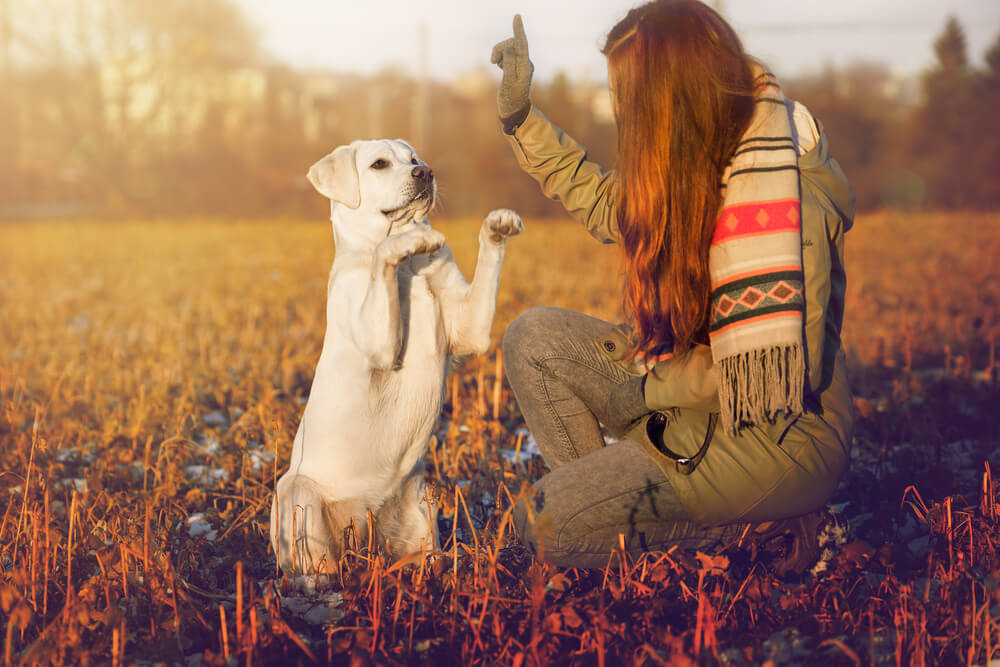News
6 Training Tips for a Well Behaved Dog

It’s not uncommon for first-time owners to feel a little overwhelmed when confronted with training a new dog. But it is important to have rules set as soon as possible so your dog can learn their boundaries and what they can & can’t do. That’s why we’ve collected some simple but effective basic training tips to help keep your unruly pooch in check.
Choose your dog’s name and respect it
The first tip is one of the most important choices to make when bringing your new pet home; choosing his name. In some cases, your dog may already have a name. This may have come from a shelter or breeder who has given them a name whilst waiting for a new owner to claim them. In these cases, you may like the name and stick with it or choose to give your dog a new name. Dogs are adaptable creatures, and if you use a name consistently, they will respond to it as their new moniker. For early training purposes, we also recommend a name that’s short with a strong consonant (i.e. Jack, Max, Sam). A short, strong name like these will help your dog always hear his name clearly.
Choose your house rules and stick to them
It’s vital that your new furry friend understands straight away what he is and isn’t allowed to do. Is he allowed on the couch? Is he allowed upstairs? Are there certain rooms he can’t go in? Setting down ground rules early will establish between you and your dog what his limits are. At first, you’ll definitely have some rebellion from your dog as they’ll defy their new rules every now and then. But with enough reinforcement, your dog will learn what his boundaries are.
Teach him to come when called
Teaching your dog to respond when you call is the first command you need to teach. In these situations, you need to reinforce to your dog that you are in charge and they need to answer when called. Once he has answered, be sure to react to him in a very positive way to so he learns that answering when called is rewarded as good behaviour. We also recommend trying to call him when he is busy doing something interesting. This can be when he’s playing or chewing. If he answers, then it shows that he understands answering you is more important than an activity he enjoys.
Discourage biting and nipping
Biting and nipping is common amongst puppies and younger dogs. Whilst nipping at your hands or fingers can be harmless, it’s important that your dog learns not to nip too hard. It’s important that your dog learns not to bite and chew whatever he finds around the house. From your cushions to your slippers, and even to the sideboards, your dog has to be aware that there are things in the house he can’t get his gnashers around. Thankfully, a strong chew can help keep them busy and stimulated whilst fulfilling his biting needs.
Reward good behaviour
Of course, it’s always essential to reward your dog for all the positive progression he makes during his training. Knowing that there will be a lot of love and a tasty treat waiting at the end of a job well done, your dog will work hard to ensure that he follows orders as best he can. Also, make sure that you never reward your dog for bad behaviour. Your dog needs to learn that he will only receive a treat when he has achieved an order or task. If his bad behaviour is also rewarded, he’ll be confused about what the correct behaviour is.
Always end training on a positive note
Your dog has worked hard trying to follow commands, learn new rules and do his best to please you. That’s why you should always end your training time positively. This can be with lots of love and attention, a lot of petting and a treat, or a few minutes of playtime. This means that when it comes time for the next training session, your dog will be ready to work hard and do his best, knowing that he will be rewarded in the end if he does well.
